Philadelphia has been a national leader in higher education since Ben Franklin founded the University of Pennsylvania in 1740. Our local institutions of higher learning are adding to this proud legacy by blazing trails in graduate-level sustainability education. Compared to traditional programs, these degrees are typically more interdisciplinary. Students are not just encouraged, but required to take courses in different fields, and to collaborate with peers and professors outside of their academic specialties. The result is a unique experience in solving real-world sustainability problems with skills that directly translate to careers. But is the job market ready for graduates with new degrees from these nascent programs? We feature nine students who completed sustainability-centered graduate programs in Greater Philadelphia. These profiles highlight the many career paths that await those who seek work in the green economy.
 Brad Sherman, Product Designer, TerraCycle Philadelphia University, Masters in Sustainable Design [est. 2007]
Brad Sherman, Product Designer, TerraCycle Philadelphia University, Masters in Sustainable Design [est. 2007]
Courses are taught by sustainable designers and engineers for an interdisciplinary curriculum focused on applying creativity and knowledge to real world sustainability problems. Degree options: 12-month accelerated, 2-year full-time, 2-year part-time, 18-month hybrid online/on-campus. philau.edu/green
Brad Sherman, Product Designer, TerraCycle
Trenton, NJ | Class of 2009
After taking a course in sustainable planning as an undergraduate, Brad Sherman realized he was more passionate about sustainability than his urban planning major. So, he enrolled in the one-year option of the Sustainable Design program (the first student to do so), thinking he might pursue a career as an architect. But a course in green materials had Sherman again reconsidering his career path. He began thinking more about waste, and designing buildings and products with minimal impact on the environment. During the green materials course, he learned about TerraCycle, which converts hard-to-recycle and non-recyclable waste into products and materials. Hoping to get a job with the company, Sherman applied (and was accepted) for an internship. Today, he is a product designer (or “design junkie”, as they say internally) for TerraCycle, and is also responsible for the recent renovations to the company’s office in Trenton. “[The Sustainable Design program] equipped me with the tools to successfully run and manage a 20,000 square-foot renovation on a $20,000 budget,” he says, speaking about the office renovations. “I designed every last detail—from the desks made out of old shipping pallets and doors to the pen holders made from old Sharpie casings.”
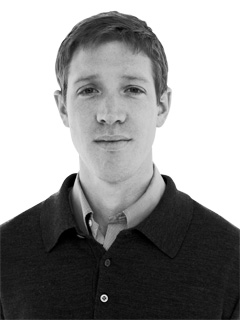 Alex Dews, Policy and Program Manager, Mayor’s Office of Sustainability, City of Philadelphia Alex Dews, Policy and Program Manager, Mayor’s Office of Sustainability, City of Philadelphia
Alex Dews, Policy and Program Manager, Mayor’s Office of Sustainability, City of Philadelphia Alex Dews, Policy and Program Manager, Mayor’s Office of Sustainability, City of Philadelphia
Philadelphia | Class of 2010
Alex Dews initially enrolled in the program at Philadelphia University intending to learn more about green building, and how that knowledge could be applied to real estate development. But when his work as a graduate research assistant required him to work with Councilman Curtis Jones’ office, Dews’ interests shifted to city government’s role in sustainability issues. His timing couldn’t have been better. The spring after Dews enrolled, Mayor Nutter released his Greenworks Philadelphia plan. Dews started thinking about sustainability on the city level, and for his thesis decided to look at sustainability policy implementation. His research led him to Philadelphia’s Office of Sustainability, where he was eventually hired as the policy and program manager while he finished his thesis. “I was really eating, sleeping, breathing sustainability policy implementation,” says Dews about his last semester. “It was great for me, great for that project.”
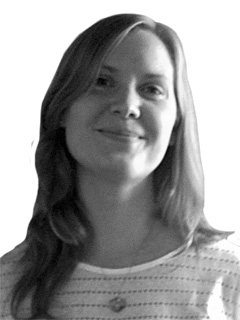 Fern Gookin, Director of Sustainability, Revolution Recovery; Co-founder of Recycled Artist-in-Residency Fern Gookin, Director of Sustainability, Revolution Recovery; Co-founder of Recycled Artist-in-Residency
Fern Gookin, Director of Sustainability, Revolution Recovery; Co-founder of Recycled Artist-in-Residency Fern Gookin, Director of Sustainability, Revolution Recovery; Co-founder of Recycled Artist-in-Residency
Philadelphia | Class of 2010
With a background in architecture, experience managing indoor environmental health hazard rehabilitation projects, and a passion for sustainability, Gookin was attracted to the interdisciplinary nature of the Philadelphia University program. While writing her thesis—which examined the role of art in creating awareness about sustainability issues—she met local artists who were receiving materials from Revolution Recovery, a construction waste recycling company based in Northeast Philadelphia. The academic project inspired Gookin to co-found the Recycled Artist-in-Residency program with Philadelphia artist Billy Dufala, and helped her land a full-time position with Revolution Recovery as Director of Sustainability. Today, Gookin handles all sustainability-related projects, such as guidelines for recycling on LEED-certified construction, office renovations and stormwater management on the property.
Villanova University, Masters in Sustainable Engineering [est. 2010]
The Sustainable Engineering master’s program is one of the first of its kind in the country. Although housed in the College of Engineering, the program is multi-disciplinary and open to students without an engineering background. Once enrolled, students choose from one of four academic tracks: Alternative and Renewable Energy, Watershed Sustainability, Environmental Sustainability, or Sustainable Infrastructure and Built Environment. Degree options: Full-time, part-time, online villanova.edu
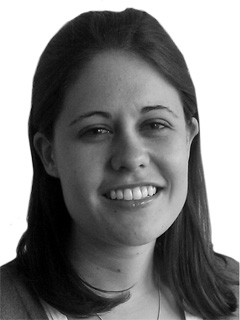 Sarah Barnett, Associate Engineer, Environmental Resources Management (ERM)
Sarah Barnett, Associate Engineer, Environmental Resources Management (ERM)
Sarah Barnett, Associate Engineer, Environmental Resources Management (ERM)
Annapolis, MD | Class of 2011
As Sarah Barnett was finishing her bachelor’s degree in chemical engineering at Villanova University, she began looking for opportunities to develop her skills in the sustainability field. But she found few options for graduate school. Fortunately for her, Dr. Bill Lorenz, a chemical engineering professor and Barnett’s senior research project advisor, was helping start a sustainable engineering program at the University. Barnett became the program’s first student. Following graduation, she moved to Annapolis to work with ERM as a consultant on sustainable strategies for corporations. In this role Barnett helps companies reduce their environmental impacts and then report their achievements. “Basically what I learned at Villanova led directly to my position here,” explains Barnett. “Not only the technical expertise and understanding of what sustainability is—and that there’s more than environmental impacts to all of the activities that we do—but that social and economic impacts are also just as important.”
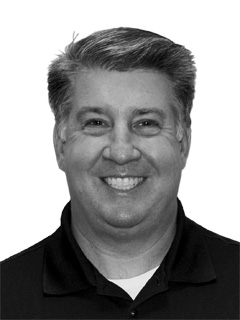 Andrew Horning, Project Manager, Bala Consulting EngineersAndrew Horning, Project Manager, Bala Consulting Engineers
Andrew Horning, Project Manager, Bala Consulting EngineersAndrew Horning, Project Manager, Bala Consulting Engineers
Philadelphia | Class of 2012
Unlike many of his classmates, Andrew Horning came into the Sustainable Engineering program with years of work experience. Horning, who has a degree in civil engineering, had spent 21 years doing commercial construction work in Philadelphia and the Delaware Valley area before being laid off in 2008. While out of work, he pursued energy efficiency-related jobs and decided to continue his education on sustainability. Through a combination of night and online classes, Horning completed his degree while starting a new job as project manager with Bala Consulting Engineers. “I’ve been able to use the technologies and information presented through the Villanova program in our company and with our outside clients,” says Horning, whose work includes developing energy reduction strategies for large buildings.
Lehigh University, Masters in Environmental Policy Design, Environmental Initiative [est. 2009]
The Environmental Initiative was started in 2009 as an interdisciplinary program supported by four colleges within the University, including the core departments Earth & Environmental Sciences and Civil & Environmental Engineering. The program offers two independent graduate programs: Environmental Law and Policy, and Environmental Policy Design. cas.lehigh.edu/CASWeb/ei
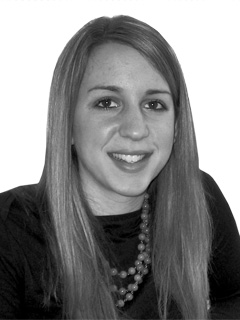 Christina Bianco, Ratings Associate, B LabChristina Bianco, Ratings Associate, B Lab
Christina Bianco, Ratings Associate, B LabChristina Bianco, Ratings Associate, B Lab
Berwyn, PA | Class of 2010
While pursuing a double major in environmental studies and Spanish, Christina Bianco took a course on the impending energy crisis. During the class, Bianco realized what she wanted from her future career. “I felt like there’s this problem, and if I’m going to go down a career path, I want it to be one where I feel like I’m needed in the current state of the economy and the environment,” she says. After finishing her degree at Lehigh University, she continued into a master’s program offered through the Environmental Initiative program. “I thought I wanted to work for the EPA,” she says. But while pursuing her master’s degree, Bianco interned with Lehigh’s Purchasing Department, and helped choose environmentally-friendly furniture for a newly built LEED building and write a green purchasing policy. The experience encouraged Bianco to apply for a job with B Lab, a nonprofit in Berwyn, Pa. that helps businesses become certified as environmentally and socially responsible businesses, or B Corporations. Bianco works directly with companies that want to certify as B Corporations and assists in determining ratings of their social and environmental performance for their investors.
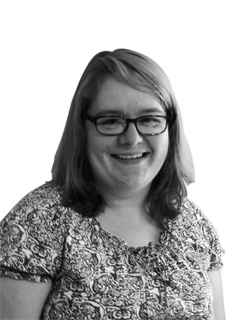 Sarah Morgan, Transportation Manager, Heritage Community Initiatives Sarah Morgan, Transportation Manager, Heritage Community Initiatives
Sarah Morgan, Transportation Manager, Heritage Community Initiatives Sarah Morgan, Transportation Manager, Heritage Community Initiatives
Pittsburgh, PA | Class of 2010
Sarah Morgan admits that her interests were very different from her fellow classmates in the Environmental Policy Design master’s program. “Most were concerned with the design of major environmental laws. My interest was always in local environmental decision making,” she says. “I wanted to know the theory behind environmental laws and regulations… to help shape how I was going to affect change once I was out in the world.” Morgan entered the program after completing a bachelor’s degree in environmental studies at Lehigh. Even though the University doesn’t have an urban planning school, the program’s flexibility allowed Morgan to study those ideas through an environmental policy lens. “[It was] a totally new perspective that really allowed me to get the most out of the program, which was a totally unique experience I wouldn’t have gotten anywhere else.” After graduating, she worked with the North Jersey Transportation Planning Association in Newark on developing climate adaptability and mitigation plans. Interested in a more hands-on approach, she took a job with the nonprofit Heritage Community Initiatives. As transportation manager, Morgan handles the shuttle service that supplements the existing public transportation service for people who need to get to work or work-related support services.
University of Pennsylvania, Masters in Environmental Studies [est. 1994]
Students in the Environmental Studies master’s program can choose from a number of concentrations, including environmental sustainability, resource management, or even create their own. All programs of study are considered interdisciplinary and students are allowed (and encouraged) to take courses in different schools at the University. The program also offers special dual degrees in business administration and governmental administration. Degree options: Part-time, full-time. sas.upenn.edu/lps/graduate/mes
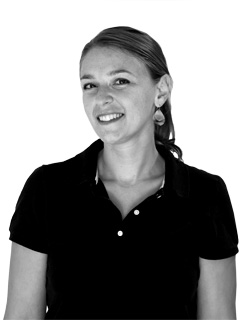 Lia Mastropolo, Water Resources Team, AKRF, Inc.Lia Mastropolo, Water Resources Team, AKRF, Inc.
Lia Mastropolo, Water Resources Team, AKRF, Inc.Lia Mastropolo, Water Resources Team, AKRF, Inc.
Philadelphia | Class of 2010
Although Lia Mastropolo graduated with a bachelor’s degree in English, she knew her interests aligned more with environmental work. So, she took a job with the Nature Conservancy as a volunteer coordinator. After a year, she decided a more technical background was necessary—especially if she wanted to pursue a career in urban water resources. “There are not a lot of environmental programs in a big city like Philadelphia,” says Mastropolo, who was attracted to the University of Pennsylvania both for the urban location and the opportunity to take courses in multiple departments, like city planning, landscape architecture and environmental studies. Mastropolo created an individualized program on water resources policy, and paired her coursework with internships at the Pennsylvania Environmental Council and AKRF, an environmental, planning and engineering consulting firm. Mastropolo now works on the AKRF water resources team. Part of her job involves being a consultant for the Philadelphia Water Department on a design assistance program for commercial property owners. Under Mastropolo and her team’s recommendations, these commercial customers can make changes to their property to reduce impervious surfaces and receive credits on their bill.
University of Delaware, Masters in Energy and Environmental Policy [est. 1997]
The Center for Energy and Environmental Policy is one of the oldest sustainability education programs in the Philadelphia area. In 1997, the Center (founded in 1994) created the graduate degree in Energy and Environmental Policy—the first in the country. Students can choose from a doctoral or master’s program. There is also a degree option for undergraduates. ceep.udel.edu
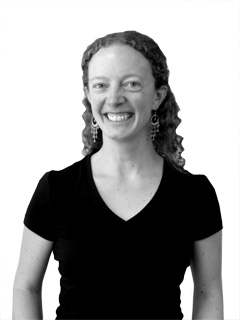 Emily Linn, Environmental Protection Specialist, Environmental Protection AgencyEmily Linn, Environmental Protection Specialist, Environmental Protection Agency
Emily Linn, Environmental Protection Specialist, Environmental Protection AgencyEmily Linn, Environmental Protection Specialist, Environmental Protection Agency
philadelphia | class of 1999
In 1997, as emily linn was finishing her bachelor’s degree in history, she began looking for graduate programs in sustainability. At the time, the academic offerings in the field were still fairly limited. “There really weren’t a lot of programs out there that had a sustainability focus that you could actually get a degree in,” says Linn. But that year, the University of Delaware created a master’s and doctoral option in their Center for Energy and Environmental Policy. Linn jumped at the opportunity, attracted by the small size and diversity of the program. “CEEP also offers a lot of on-the-ground practical opportunities to apply what you’re learning in the classroom to the real world,” says Linn. “So, there were a lot of opportunities to engage in research, teaching [and] internships.” After graduation, Linn looked for jobs in which her work would have an impact on the community level. She worked for the Clean Air Council before transferring to the Philadelphia office for the Environmental Protection Agency, where she helps run volunteer and energy and climate partnership programs.








